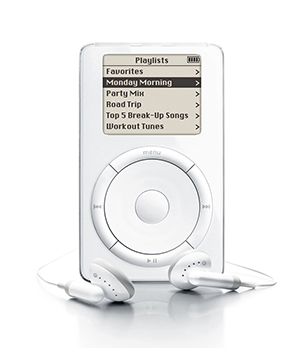Listening to my transistor radio tucked under my pillow when I was seven years old, I was on Cloud Nine. I reveled in catchy songs and lyrics—and that clandestine peek into the world of teen romance and adult drama. Little did I understand, then, that I was connecting to one of the most powerful and beautiful aspects of being human. Music is many things to many people, but it is one of the most essential ways that we all communicate, express feelings, join our voices, move, and find joy.
Like most, I took music for granted as I was growing up. I still played the ‘60s songs of my teen years as my audio devices improved from that transistor radio to my first compact stereo system. Music was always with me, whether in summer with friends at Jones Beach, or in my rooms and apartments throughout college and graduate school.
After earning my MSW from Adelphi University, I began organizing volunteer and community service programs for a consortium of colleges and universities, connecting 2,000 students to 200 schools, healthcare, and other nonprofits. During the ‘80s personal computer boom, I transitioned to personal computer sales, providing training and support in new software applications.
 Then came the iPod in 2001. I waited for the price to come down before I bought one and loaded it with my favorite songs—and listened almost every day. Five years later, I heard a journalist on the radio describe iPods as “ubiquitous.” That comment gave me pause. While iPods may have been a go-to music device for young people and other tech-savvy adults, that certainly wasn’t true for older folks, particularly individuals living in nursing homes, who would be just as appreciative. It struck me as another form of the “digital divide”—an ‘80s term highlighting the gap in technology access between those with means and those without.
Then came the iPod in 2001. I waited for the price to come down before I bought one and loaded it with my favorite songs—and listened almost every day. Five years later, I heard a journalist on the radio describe iPods as “ubiquitous.” That comment gave me pause. While iPods may have been a go-to music device for young people and other tech-savvy adults, that certainly wasn’t true for older folks, particularly individuals living in nursing homes, who would be just as appreciative. It struck me as another form of the “digital divide”—an ‘80s term highlighting the gap in technology access between those with means and those without.
Why should the freedom to listen to any song be so easy for the young, but unavailable to others who would be just as appreciative? I loved my work introducing new solutions that personal computers offered to individuals, companies, and hospitals. Why not take the same approach here and use iPods to bring music access to people living in nursing homes and other healthcare entities? I knew that someday, if I ever ended up in a nursing home, I’d want my favorite ‘60s music to come with me. By then, I hoped everyone would already have access their favorites.
With no background in Alzheimer’s disease or nursing homes, but comfortable with technology and facilitating community change, I tried to learn how giving people in nursing homes the music they loved would affect their moods, energy, and happiness. When they “lit up,” I knew I was onto something.
That led me to found Music & Memory in 2010, a non-profit dedicated to bringing personalized music playlists to people with cognitive and physical conditions, first in nursing homes, and later, in a wide arrange of healthcare settings. Over the next nine years, we inspired thousands of care settings and systems, large and small, to bring our personalized music program to those in their care, with evidence-based, profound benefits.
Why, when our most vulnerable fellow citizens are facing difficult health challenges, do we ignore the great, drug-free benefits so readily accessible to the rest of us who are able to play our own music whenever we want? Why, for individuals in nursing homes, many of whom spend most of their days idle with no hope of a visitor, can’t we ensure that they have a better day by re-connecting with the music they love?
Even with so many dedicated and devoted caregiving efforts, we’ve come to accept depression, loneliness, and isolation for elders as an acceptable norm.
I’m not willing to settle for that. By spreading access to personal music—a human right—we can make a meaningful change in the status quo. There’s nothing to lose, and so much potential for good.
I’d be honored to share what I’ve learned about how favorite music can improve quality of life for those in your care. Please contact me, Dan Cohen, to discuss your needs and arrange for a presentation.
